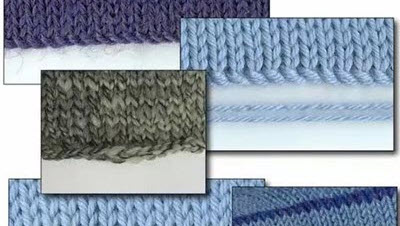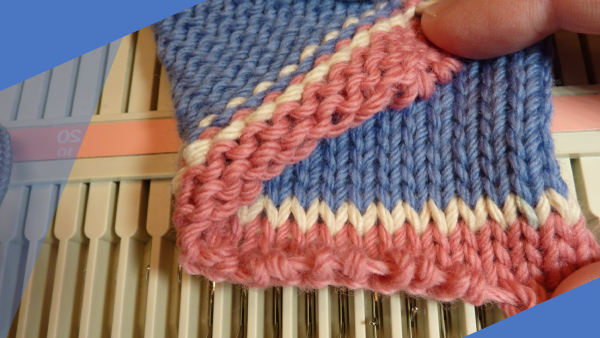1Open Cast on
By definition,
an open cast on will have stitches that will unravel if given the chance.Some machine manuals will give instruction for this type of cast on
Here are some variations:
- Open Cast on with a cast on Comb (shown in the video)
- Open Cast on with a wire
- Open Cast on with Ravel cord (shown in the video)
Most knitters graduate beyond these methods pretty quickly.
The following cast on methods leave open stitches to be worked later. For example, leave open stitches, then pick them up and hand knit some ribbing. Or turn the knitting, pick up open stitches and knit reverse stockinette.
You will use these again and again

